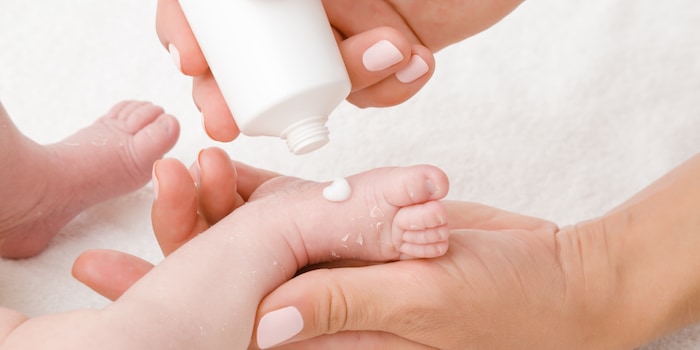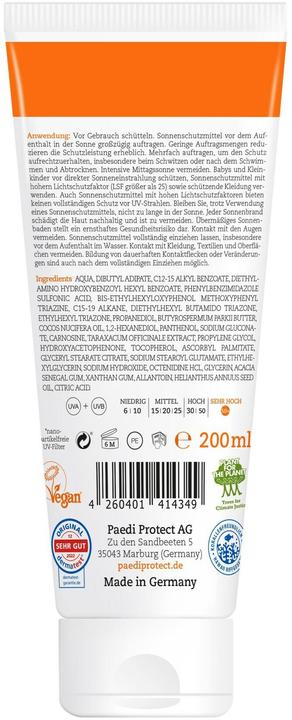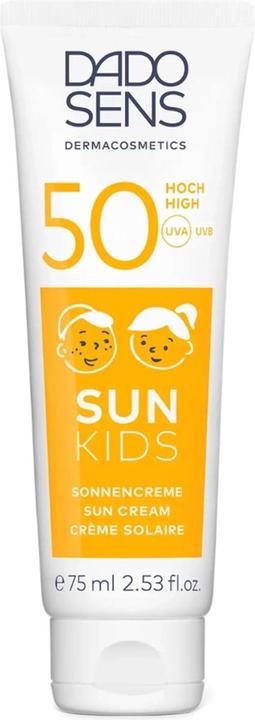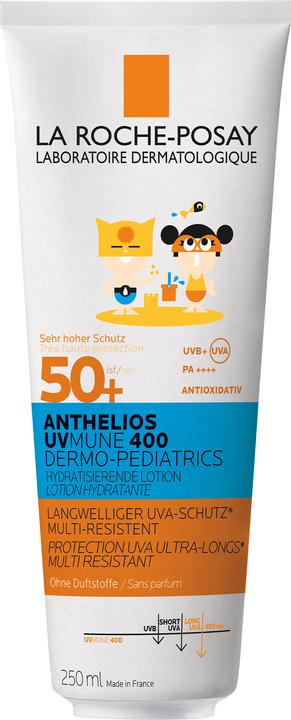

Not all are good: Öko-Test tested 25 children's sun creams
Öko-Test tested several sunscreens for children for harmful substances. The plasticiser DnHexP was detected in some of them. You can find out which of the recommended products we have in our shop here.
The test winners
The good news: seven of the products tested were rated "very good". These include two products especially for babies: the "Babydream Sun Spray extra sensitive 50+" from Rossman and the sun spray from DM's own brand "Babylove" for sensitive skin. The "Sundance Kids Sun Spray 50" from DM also received top marks.
The "Clean Sun Kids Sun Cream SPF 50" from Lidl, the "Nivea Sun Kids Spray 5in1" with sun protection factor 50, the "Sunozon Kids Sun Milk 50+" from Rossmann and the "Tabaluga Sun Milk for Children Sensitive 50 received a "Very Good".
UV filter contains plasticisers
Traces of the plasticiser DnHexP were found in six sun creams, with Kaufland's "Bevola Kids Sun Cream 50+" even containing larger quantities. All of these creams received the test grade "Poor":
Surprisingly, in my opinion, the "family sun cream" from Paediprotect is also one of them. Products from the popular brand had previously often received top marks in reviews by Öko-Test.
Still no cause for concern
The plasticiser DnHexP has already been banned as an ingredient in cosmetics since 2019 as it is suspected of affecting fertility.
Plastic compounds such as synthetic polymers were also found in four of the products tested and penalised with a point deduction. Other creams were criticised for advertising with the term "coral-friendly" because they do not use substances that are considered particularly harmful to corals, but at the same time use other, no less harmless substances such as chemical UV filters. <p
A true local journalist with a secret soft spot for German pop music. Mum of two boys, a dog and about 400 toy cars in all shapes and colours. I always enjoy travelling, reading and go to concerts, too.
From the latest iPhone to the return of 80s fashion. The editorial team will help you make sense of it all.
Show all



